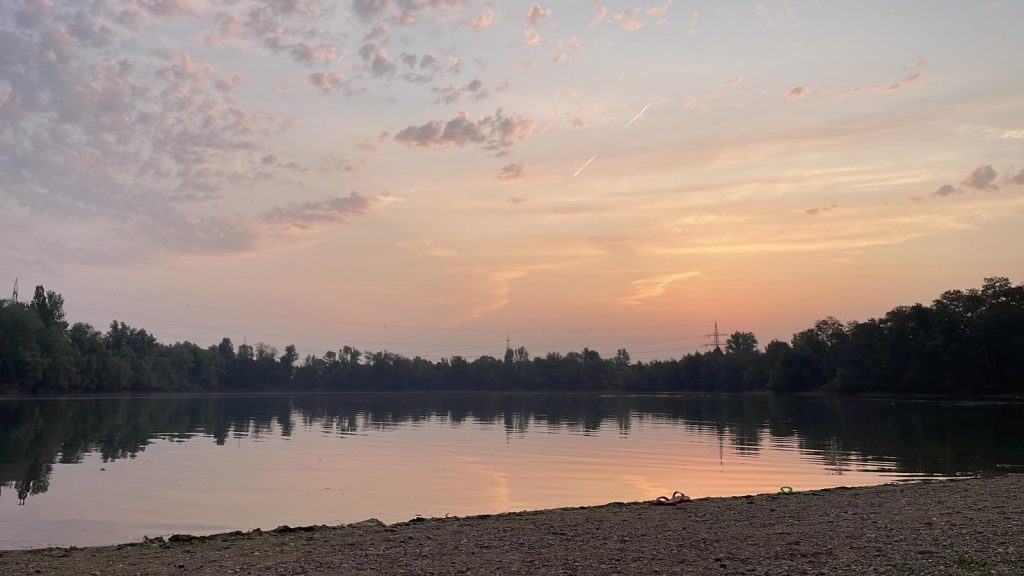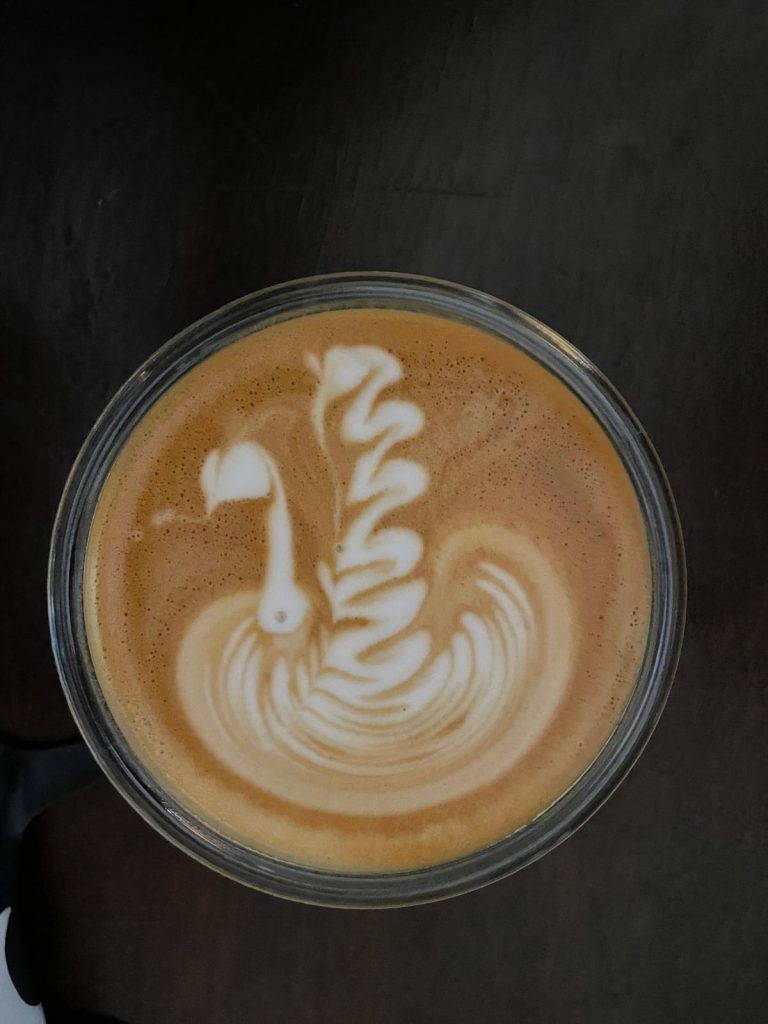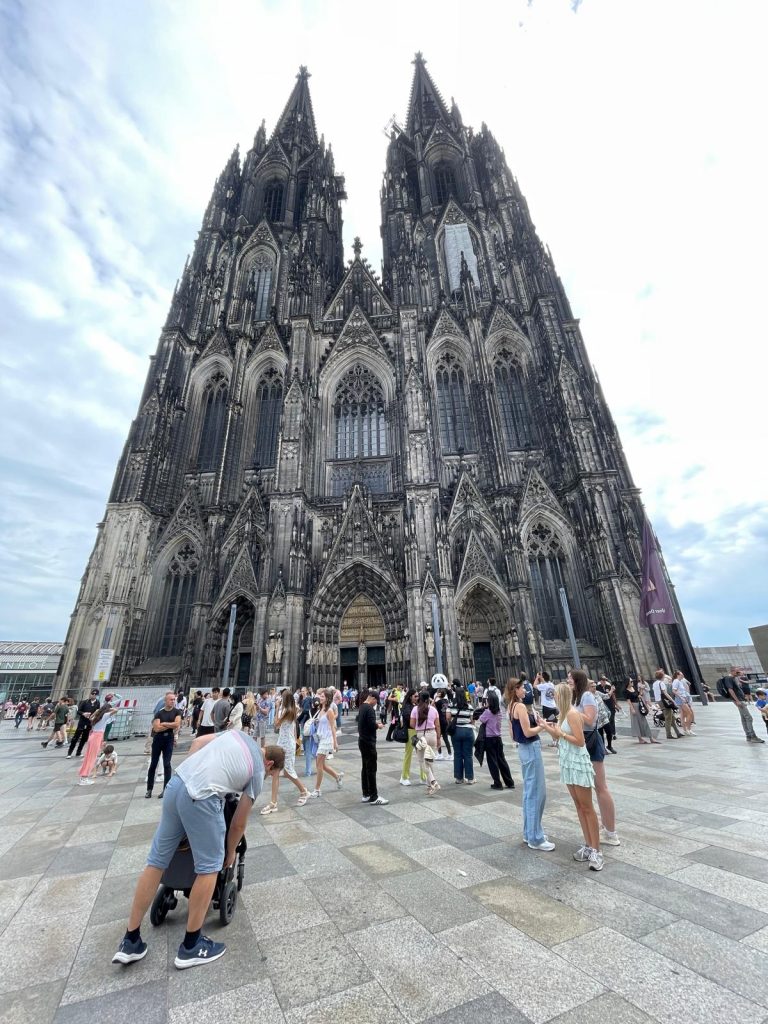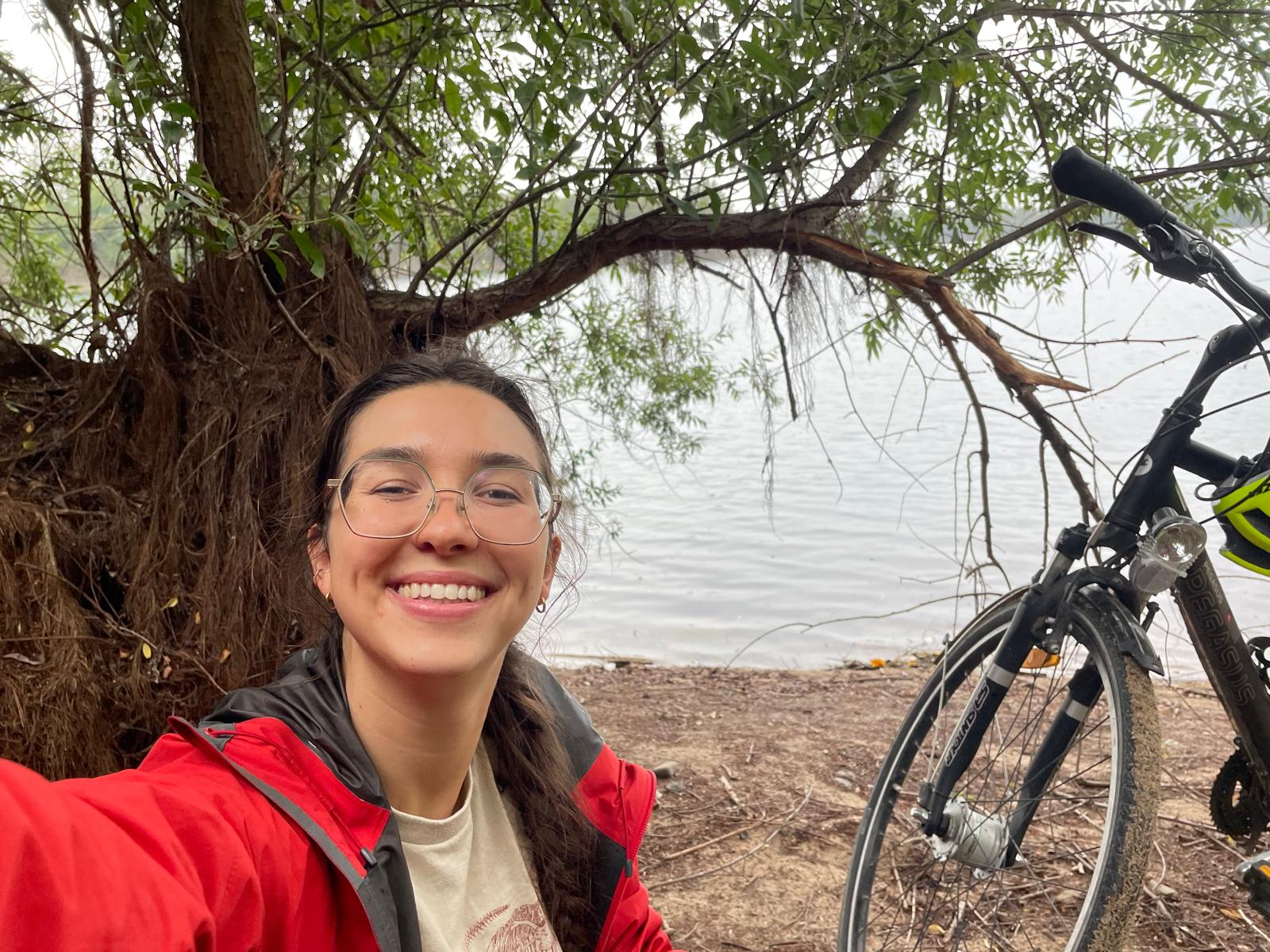Every Summer Semester, Ecotox Master students do a 2-month internship or AMEO (Applied Module at an External Organization). Today, Bailey Tock tells us about her AMEO experience in the Experimental Aquatic Unit at the Bayer Monheim campus
My name is Bailey Tock, a rising ecotoxicologist in the RPTU Ecotoxicology MSc. Program, and I completed my 15-week AMEO in the Experimental Aquatic Unit at the Bayer Monheim campus.
The Bayer Aquatic Experimental Unit provides internal ecotoxicological research on chronic and acute effects of products, testing potential impacts of products on algae, plants, freshwater invertebrates, and fish. These tests include pre-tests that provide a framework for potentially usable concentrations (without unacceptable adverse effects on non-target organisms) as well as GLP studies required for monitoring, licensing, and relicensing products in the EU.
Throughout my internship, I primarily worked with a 56 day mesocosm study examining the impacts of herbicides on periphyton growth. Periphytons were chosen as the main focus of this year’s internal mesocosm study due to their importance in aquatic ecosystems: as primary producers, periphyton serve as an important food source for untold numbers of freshwater invertebrates, and are therefore of high interest when considering the ecological effects of pesticides in the aquatic environments.
In practice, this research necessitated biweekly periphyton and algae measurements, as well as nutrient testing and additions, invertebrate population sampling, water parameter measurements, analytic sampling, emergence trap maintenance, and a variety of miscellaneous but integral tasks.
Prior to the study start, I assisted with setup and organizational processes, learning how to organize a mesocosm study on this scale. By the end of my internship, I was familiar with many facets of mesocosm preparation, execution, and post-study tasks, including both practical and theoretical aspects. This experience, along with the practical experiences I acquired assisting with both GLP and non-GLP studies and cultures, has buoyed my confidence and provided me with a solid foundation for further studies and knowledge acquisition within the field of aquatic ecotoxicology.
Beyond academic and career growth, my summer in Leverkusen and Monheim provided me with ample opportunities for travel and exploration; its location allows for easy access to the train hubs in Köln and Düsseldorf, and smaller adventures were always possible. Besides ecotoxicology, my summer was filled by ample coffee drinking opportunities, frequent swimming in the lakes around Leverkusen, bike rides, kickboxing classes, and visits to nearby (and not so nearby!) attractions.
Unfortunately, due to Bayer policy, it is not possible to take or share photos from the Bayer campus. Therefore, here are a few snapshots from my summer activities.




Through my internship with Bayer, I gained valuable knowledge and skills, confidence in lab, field, and mesocosm settings, and cemented the ecotoxicological framework I built over the winter semester. I am looking forward to a fruitful career in ecotoxicology, and cannot wait for my next research opportunity.
